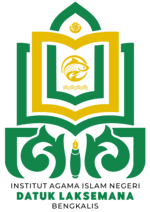The Role of Parents in Improving Character Education during Covid-19 Pandemic
DOI:
https://doi.org/10.56633/jkp.v16i2.123Keywords:
role of parents, character education, covid-19Abstract
Covid-19 has a major impact on all sectors of public life, including the education sector. It is an important sector that supports all types of academic activities. Covid-19 forces the government to close all schools and start implementing distance learning. This certainly raises several views, because not all schools in Indonesia can effectively implement distance learning. To overcome this problem, cooperation between several parties is required. Especially the role of parents who must be more active at home to replace the role of teachers at school. The role of parents is expected to be able to provide a good teaching and learning atmosphere at home. The focused on this problem is the character development of children during the covid-19 pandemic. Parents must be able to provide examples and guidance about character circles, which children learn from parents through sense senses. Therefore, parents must be able to set a good example before giving character education to children at home.
References
Aji, Rizqon Halal Syah. “Dampak Covid-19 Pada Pendidikan Di Indonesia :” Jurnal Sosial & Budaya Syar-i, 2020.
Arsendy, Senza, George Adam Sukoco, and Rasita Ekawati Purba. “Riset Dampak COVID-19: Potret Gap Akses Online ‘Belajar Dari Rumah’ Dari 4 Provinsi.” Https:/Theconversation.Com, 2020.
Baharin, Roziana, Rizqon Syah, Ishak Yussof, and Nasir Mohd Saukani. “Impact of Human Resource Investment on Labor Productivity in Indonesia.” Iranian Journal of Management Studies, 2020.
BPS. “Hasil Survei Sosial Demografi Dampak COVID-19.” Hasil Survei Sosial Demografi Dampak COVID-19, 2020.
———. Indeks Pembangunan Teknologi, Informasi, Dan Komunikasi (ICT Development Index) 2018. Subdirektorat Statistik Komunikasi Dan Teknologi Informasi, 2019.
Edi Widianto. “Peran Orang Tua Dalam Meningkatkan Pendidikan Karakter Anak Usia Dini Dalam Keluarga.” PG-PAUD Trunojoyo, 2015.
Gugus Tugas Percepatan Penanganan COVID-19. “Peta Sebaran Kasus COVID-19 Di Indonesia.” covid19.go.id, 2020.
Ihsanuddin. “Fakta Lengkap Kasus Pertama Virus Corona Di Indonesia.” Kompas.Com, 2020.
Kavanaugh, JV. “The Artifact in American Culture: The Development of an Undergraduate Program in American Studies.” In Material Culture and the Study of American Life, 1978.
Lickona, Thomas. “Eleven Principles of Effective Character Education.” Journal of Moral Education, 1996. https://doi.org/10.1080/0305724960250110.
Magnuson, Katherine A., Marcia K. Meyers, Christopher J. Ruhm, and Jane Waldfogel. “Inequality in Preschool Education and School Readiness.” American Educational Research Journal, 2004. https://doi.org/10.3102/00028312041001115.
Mansyur, Abd Rahim. “Dampak COVID-19 Terhadap Dinamika Pembelajaran Di Indonesia.” Education and Learning Journal, 2020. https://doi.org/10.33096/eljour.v1i2.55.
Megawangi, Ratna. Pendidikan {Karakter} {Solusi} {Tepat} {Untuk} {Membangun}. Jakarta: Indonesia Herritage Foundation, 2004.
Nucci, Larry, Darcia Narvaez, and Tobias Krettenauer. Handbook of Moral and Character Education. Handbook of Moral and Character Education, 2014. https://doi.org/10.4324/9780203114896.
Rahman, Muhammad Adi, Ahmad Zuhdi Dwi Kusuma, Akhmad Ramadhan Fatah, and Hafiz Arfyanto. “Mengantisipasi Potensi Dampak Krisis Akibat Pandemi COVID-19.” Smeru Research Institute, 2020.
Zaking, Saifan. “Kemenaker: 2 Jutaan Pekerja Kena PHK Dan Dirumahkan Akibat Covid-19.” Jawa Pos, 2020.
Downloads
Published
Issue
Section
License
Authors who publish with this journal agree to the following terms:
- Authors retain copyright and grant the journal right of first publication with the work simultaneously licensed under a Creative Commons Attribution-ShareAlike 4.0 International License. that allows others to share the work with an acknowledgement of the work's authorship and initial publication in this journal.
- Authors are able to enter into separate, additional contractual arrangements for the non-exclusive distribution of the journal's published version of the work (e.g., post it to an institutional repository or publish it in a book), with an acknowledgement of its initial publication in this journal.
- Authors are permitted and encouraged to post their work online (e.g., in institutional repositories or on their website) prior to and during the submission process, as it can lead to productive exchanges, as well as earlier and greater citation of published work (See The Effect of Open Access).






